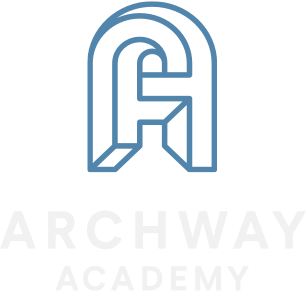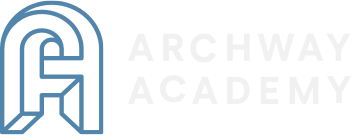- WHAT WE OFFER
- FOCUS ON SUSTAINED RECOVERY
- 12 STEP PROGRAM
- RECOVERY HIGH SCHOOL
- WHAT MAKES ARCHWAY UNIQUE
Recovery IS possible.
Archway Academy offers a supportive and enthusiastic environment for recovery and education. Our counselors work closely with each student and their families to nurture and encourage them and cultivate resources with the ultimate goal of continued and lifelong recovery. To that end, we develop individual recovery plans that:
- Identify community supports
- Acknowledge and encourage family involvement
- Provide detailed relapse prevention and intervention strategies
- Are tailored to the individual student’s current situation and needs
We also offer additional counseling and recovery services to facilitate each student’s unique needs:
- Four full-time licensed counselors and recovery coaches
- Full-time adjustment/guidance counselor
- Individual & group counseling/therapy sessions
- Addressing co-occurring issues and social/emotional needs beyond substance use
- Family systems therapy
- Collaboration with community resources and each student’s personal network
Sustained recovery is the goal.
While the exact definition can vary, sustained recovery is defined by The Substance Abuse and Mental Health Administration (SAMHSA) as follows: “Recovery from alcohol and drug problems is a process of change through which an individual achieves abstinence and improved health, wellness, and quality of life.” There are four main dimensions that support recovery: health, home, purpose, and community. Even further, SAMHSA articulates twelve “Guiding Principles of Recovery.
- There are many pathways to recovery.
- Recovery is self-directed and empowering.
- Recovery involves a personal recognition of the need for change and transformation.
- Recovery is holistic.
- Recovery has cultural dimensions.
- Recovery exists on a continuum of improved health and wellness.
- Recovery is supported by peers and allies.
- Recovery emerges from hope and gratitude.
- Recovery involves a process of healing and self-redefinition.
- Recovery involves addressing discrimination and transcending shame and stigma.
- Recovery involves (re)joining and (re)building a life in the community.
- Recovery is a reality. It can, will, and does happen.
“Recovery is a reality. It can, will, and does happen.”
We use the 12-Step Program as a cornerstone of student success.
Archway Academy subscribes to the 12 Steps of Recovery, originally outlined by Alcoholics Anonymous and now used widely by various recovery groups.
Step 1: We admitted we were powerless over alcohol — that our lives had become unmanageable.
Step 2: Came to believe that a Power greater than ourselves could restore us to sanity.
Step 3: Made a decision to turn our will and our lives over to the care of God as we understood Him.
Step 4: Made a searching and fearless moral inventory of ourselves.
Step 5: Admitted to God, to ourselves, and to another human being the exact nature of our wrongs.
Step 6: Were entirely ready to have God remove all these defects of character.
Step 7: Humbly asked Him to remove our shortcomings.
Step 8: Made a list of all persons we had harmed, and became willing to make amends to them all.
Step 9: Made direct amends to such people wherever possible, except when to do so would injure them or others.
Step 10: Continued to take personal inventory and when we were wrong promptly admitted it.
Step 11: Sought through prayer and meditation to improve our conscious contact with God as we understood Him, praying only for knowledge of His will for us and the power to carry that out.
Step 12: Having had a spiritual awakening as the result of these Steps, we tried to carry this message to alcoholics, and to practice these principles in all our affairs.
We know that this process can be overwhelming for parents. We are here to help your family navigate Archway or other programs that might be beneficial.
What is a recovery high school?
Recovery high schools are designed specifically for students who are struggling with substance use disorder and/or co-occurring disorders. While each school has a different method of operating, recovery schools all share the following main goals:
- Educate students in recovery from substance use or co-occurring disorders;
- Meet state requirements for awarding secondary school diplomas;
- Intend that all students be enrolled in recovery and working through a program of recovery from substance use or co-occurring disorders as determined by the student and the school;
- Be available to any student in recovery who meets state or district eligibility requirements for attendance (students don’t have to go through a particular treatment program to enroll, and the school is not simply the academic component of a primary or extended-care treatment facility or therapeutic boarding school)
Staffing for recovery high schools includes administrative staff, teachers, substance abuse counselors, and mental health professionals. In addition, recovery high schools give support to families learning how to live with their teens who are embarking on their recovery journey.
The whole purpose is to surround your child — and the entire family — with a solid foundation of support while also ensuring that education is at the forefront.
What makes Archway Academy unique.
We’re a sober high school in Houston that leads the way on implementing effective recovery programs and top-notch education for our students. What you can expect:
- Two programs — one for students who have fewer than 60 days sober (Passageway) and one for students with 60+ days sober (Archway)
- A rolling admissions policy — apply anytime throughout the school year
- Small class sizes and low student-to-teacher ratios
- Flexible curriculum with a combination of online and traditional classes
- Summer school
- A rigorous academic curriculum with electives, PSAT testing, college fairs, and a robust Student Council
- Layers of accountability and communication within the school and across the continuum of care, including private counselors, probation officers, residential treatment clinicians, and Alternative Peer Groups (APGs)
- Daily check-in sessions
- Easy access to recovery support and and on-site clinician
- Availability of financial aid and scholarships


